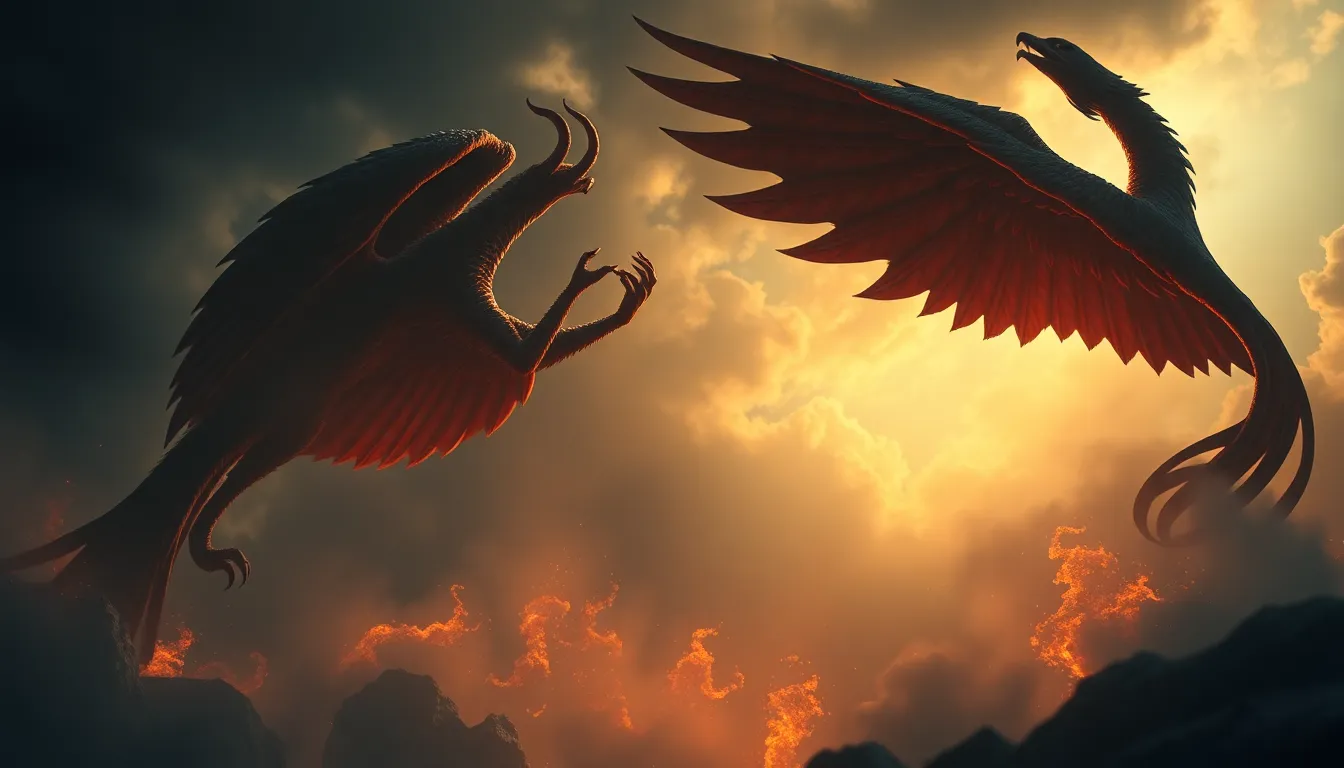Exploring the Origins of the Furies: From Chaos to Order
I. Introduction
The Furies, known in Greek mythology as the Erinyes, are formidable figures representing vengeance and retribution. These deities serve as a stark reminder of the consequences of wrongdoing, embodying the darker aspects of justice. Their presence in ancient texts and cultural narratives accentuates their significant role in the Greek understanding of morality and justice.
In this article, we will delve into the origins and evolution of the Furies, tracing their development from chaotic entities to essential agents of order within Greek mythology. Through this exploration, we aim to uncover their importance in ancient literature and their enduring legacy in contemporary society.
II. Historical Context of the Furies
Greek mythology is a rich tapestry woven with gods, goddesses, and mythical creatures, forming a complex pantheon that reflects the values and beliefs of ancient Greek culture. Within this pantheon, the Furies occupy a unique position, representing not only vengeance but also the moral order of the universe.
In ancient Greek society, the Furies were invoked in matters of justice, particularly in cases of familial betrayal or murder. Their fearsome reputation served to deter wrongdoing, highlighting the societal need for a mechanism of accountability. When compared to other mythological figures of vengeance, such as Nemesis, the Furies stood out due to their direct connection to the maternal, primal forces of the earth.
III. The Genesis of the Furies
The origins of the Furies are steeped in the primordial chaos that characterized the early cosmos in Greek mythology. According to the myth, they emerged from the blood of Uranus, the sky god, when he was castrated by his son Cronus. This violent act of separation gave rise to various entities, including the Furies, who emerged as symbols of retribution.
The symbolism of their origin is profound. The Furies’ birth from blood signifies the deep connection between violence and justice. Their existence serves as a reminder that chaos must be confronted to restore order, establishing a critical balance between vengeance and morality.
IV. The Function of the Furies in Myth
The Furies played a pivotal role as agents of vengeance and justice in Greek mythology. They were tasked with punishing those who committed grave offenses, particularly familial crimes such as murder and betrayal. Their presence served as a reminder that no wrongdoing could escape consequences.
Furthermore, the relationship between the Furies and human morality is complex. They are not merely harbingers of punishment; they embody the moral convictions of a society that values justice. Some notable myths involving the Furies include:
- The Oresteia: In Aeschylus’s trilogy, the Furies pursue Orestes after he avenges his father’s murder, illustrating the conflict between personal vengeance and societal order.
- Oedipus Rex: The Furies are invoked as a force of retribution against Oedipus for his unwitting sins, emphasizing the inescapable nature of fate and moral accountability.
- The Bacchae: Euripides portrays the Furies in a more complex light, showcasing their dual roles as agents of punishment and protectors of societal norms.
V. The Evolution of the Furies in Literature
The depiction of the Furies has undergone significant transformation throughout ancient texts. One of the most notable transformations occurs in Aeschylus’ “Oresteia,” where the Furies evolve from vengeful spirits to protectors of order. In this trilogy, they are ultimately transformed into the Eumenides, or “Kindly Ones,” symbolizing a shift from chaos to a more structured system of justice.
This evolution reflects a broader literary trend where the portrayal of vengeance becomes intertwined with the ideals of justice and order. The Furies’ journey illustrates how ancient Greek society grappled with the complexities of morality, paving the way for their influence on later literary and artistic representations.
VI. The Furies in Modern Culture
In contemporary literature and film, the Furies have been reinterpreted in various ways, often serving as symbols of female empowerment and rage. They represent the struggle against oppression and injustice, resonating with modern audiences who seek to address societal issues such as gender inequality and systemic violence.
Examples of their reinterpretation include:
- Literature: Authors like Madeline Miller in “Circe” reframe the narratives of mythological figures, imbuing them with agency and complexity.
- Film: Movies such as “The Hunger Games” depict characters who embody the spirit of the Furies, championing vengeance against oppressive regimes.
Their relevance in today’s societal issues lies in their embodiment of righteous anger and the quest for justice, making them timeless figures in both mythology and modern narratives.
VII. Thematic Analysis: Chaos and Order
The duality of chaos and order is a central theme embodied by the Furies. They represent the chaotic consequences of wrongdoing while simultaneously serving as agents who restore order through justice. This duality speaks to the psychological implications of their character, reflecting the struggles individuals face in reconciling their desires for vengeance with societal expectations of justice.
Lessons from the Furies’ narratives emphasize the importance of balancing vengeance and justice in modern times. They remind us that while the desire for retribution is natural, it must be tempered by a commitment to fairness and moral integrity.
VIII. Conclusion
In tracing the journey of the Furies from chaos to order, we uncover a rich tapestry of mythology that speaks to the human condition. Their evolution from vengeful spirits to protectors of societal norms highlights the complexities of justice and morality in ancient Greece and beyond.
The lasting impact of the Furies on culture and society cannot be overstated. They serve as powerful symbols of the consequences of our actions and the moral frameworks within which we navigate our existence. Understanding their origins allows us to appreciate the depth of human emotions and the timeless struggles for justice and order in our lives.




